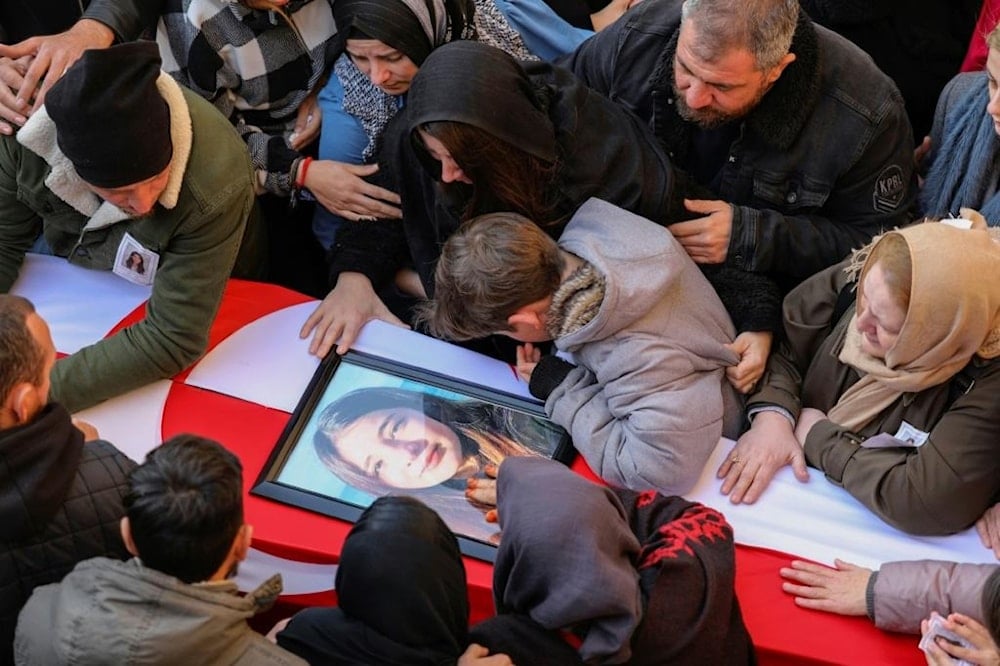Landmark trial commences in wake of 2023 Turkey-Syria earthquakes
The legal proceedings in Adiyaman focus on 11 defendants, including the hotel's owner, facing charges of "conscious negligence" in the construction supervision of the Isias Hotel.
-

Two dozen students from Northern Cyprus died when their hotel crumbled in the Turkish earthquake (AFP)
Turkey has embarked on a significant trial related to the construction of buildings that crumbled during the seismic events of February 2023, which resulted in a staggering loss of over 50,000 lives.
The legal proceedings, unfolding in the southeastern city of Adiyaman, focus on 11 defendants accused of "conscious negligence" in their supervision of the construction of the Isias Hotel. Notably, among the defendants, five, including the hotel's owner, have been apprehended and are now facing charges that could lead to imprisonment exceeding 20 years each.
The tragic collapse of the hotel claimed the lives of 24 children from Northern Cyprus, who had traveled to Turkey to participate in a student volleyball tournament. The plaintiffs, including Northern Cyprus Prime Minister Unal Ustel, contend that the incident was a preventable tragedy, emphasizing that adherence to proper safety standards could have averted the disaster.
The collapsed buildings, in total, resulted in the loss of 72 lives, with 39 victims hailing from Northern Cyprus. This incident stands as the most significant tragedy in the history of the separatist statelet, recognized solely by Ankara.
Read more: Western selective humanitarianism, Syria earthquake falls on deaf ears
The indictment reveals that the Isias Hotel was illegally converted from a residence into a hotel in 2001. Furthermore, the document notes that the hotel had illicitly constructed an extra floor beyond the nine floors allowed by the original plan.
The trial has garnered significant attention as it addresses not only the immediate aftermath of the disaster but also the broader issues of construction practices and safety standards. Among the plaintiffs, Northern Cyprus Prime Minister Unal Ustel stands as a prominent figure seeking justice for the victims.
Despite the disaster, Turkish President Recep Tayyip Erdogan emerged politically unharmed, securing re-election shortly after the earthquake struck. He attributes the significant death toll to corrupt property developers who allegedly manipulated inspections, resulting in the use of substandard building materials and the illegal addition of extra floors.
In the wake of the first 7.8-magnitude earthquake, Turkish police took swift action, arresting around 200 individuals on charges related to allegedly poor building construction practices.
Critics argue that a substantial number of Turkey's primary construction and real estate firms have developed a close association with the ruling AKP party throughout Erdogan's 21-year tenure, raising questions about the broader implications for accountability and transparency in the construction industry.
Read more: Over 850,000 children still displaced by Turkey, Syria quakes: UNICEF

 3 Min Read
3 Min Read








